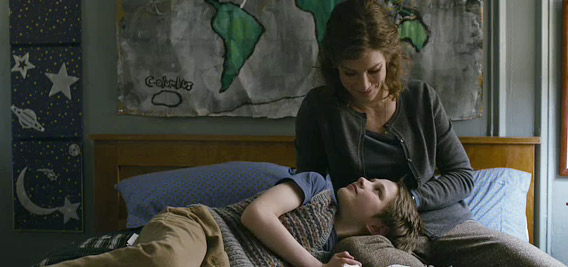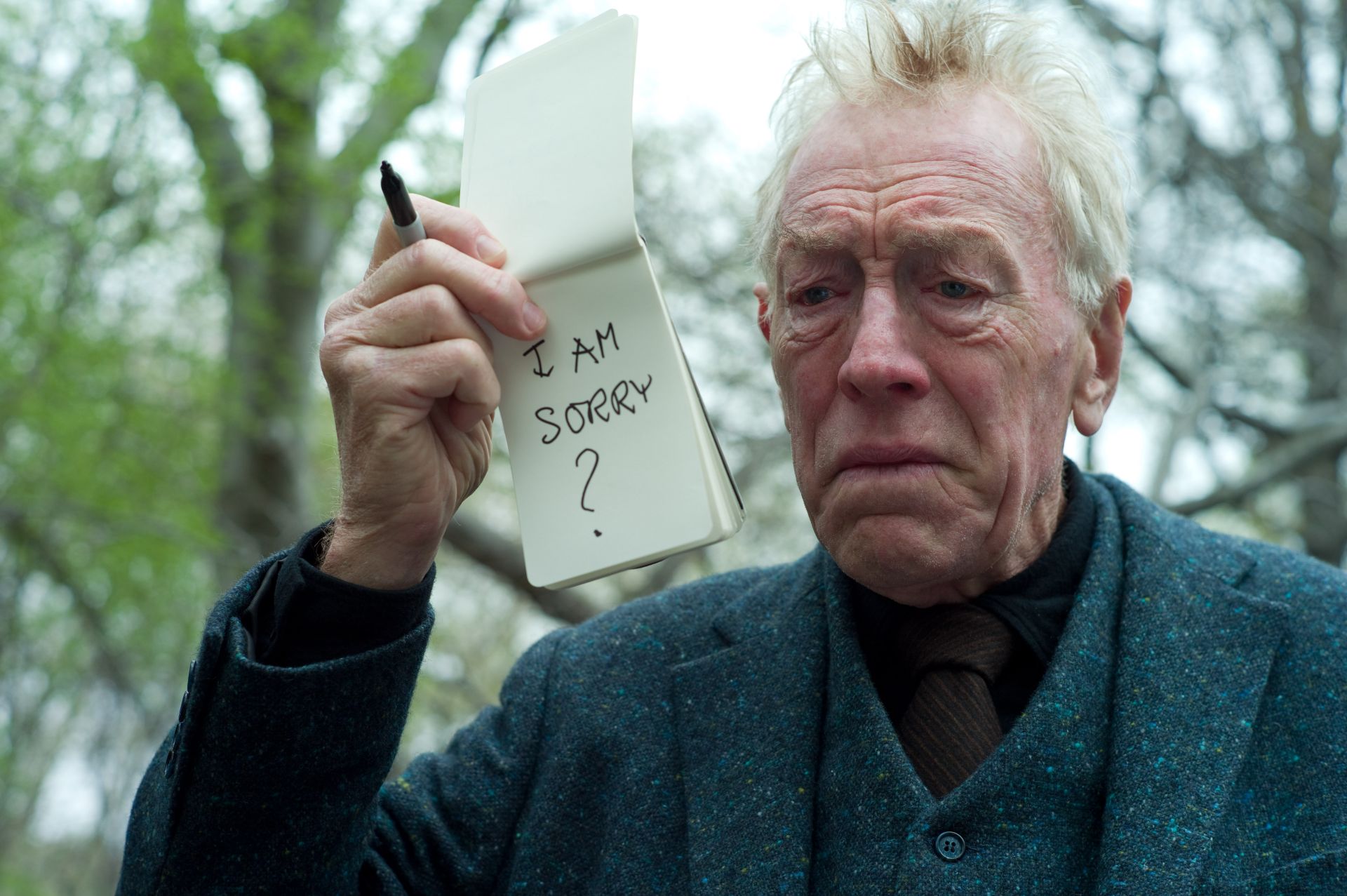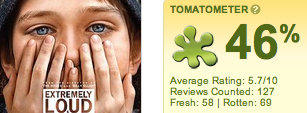Burning Questions: What Explains the Extremely Loud Nomination?
 Monday, January 30, 2012 at 10:10AM
Monday, January 30, 2012 at 10:10AM Michael C. here to take a shot at one of the curious questions that came out of the Oscar nominations.

A little over a year ago I published a post in which I tried to determine just how bad could a film be and still make the big category. In an attempt to squeeze popular opinion into chart form I subjected the last decade of nominees to an extremely unscientific examination wherein I averaged their Metacritic rating with their Rotten Tomatoes rating to come up with a rough measurement of a film’s critical reception. You can read the full post here but one of the main conclusions I reached was that the Best Picture minimum was set right about the 60% mark. This was the average Blind Side and The Reader, the two worst reviewed nominees, had received. It was a result that jibed pretty well with intuition. It’s tough to think of a nominee that received a resoundingly negative reception.
But this then begs the question: How exactly did Extremely Loud and Incredibly Close manage a Best Picture nomination? I know critics don't get a vote but rarely, if ever, has the gap between the two been this glaring.
Extremely Loud’s reception was unambiguously negative. It scored a 46% on both Metacritic and the Tomatometer. (For perspective Mr. Popper’s Penguin scored a 48%) And this wasn’t a case of malcontent critics raging against a popular success. Its first weekend of wide release saw it finish 4th behind Mark Wahlberg’s Contraband and it actually declined the weekend following its surprise nomination slipping to 6th place. This was not a path to success paved with box office dollars.
The case could be made that this kind of nomination was inevitable with an expanded Best Picture line up. There is no doubt a lot of truth to that, but even so, this remains a pretty remarkable occurrence. Maybe you can help me out in the comments but I can’t think of a single example from the past few decades where a negatively reviewed film was nominated. Even those like Godfather III, whose reputations have since collapsed, received some acclaim at the time (it still sits at a fresh 68% on RT)
So what then? Oscar hasn’t had any trouble saying no to Hanks before. Is it the Important Subject Matter? That didn’t help Oliver Stone’s World Trade Center any. Is Stephen Daldry’s charmed Oscar history the result of some pact with the devil and/or Harvey Weinstein? I’m not dismissing the idea out of hand.
Here’s my theory: Extremely Loud’s reviews were so negative that it actually helped the movie. With so much else to write about in the year-end glut, and with the consensus apparently so definitive, there was no debate necessary. The critics just filed their negative reviews (“25th Hour as directed by Care Bears” Good one, Kurt) and then clapped their hands together, “That’s that”, and moved on to the pressing business of the day such as writing about the backlash against the backlash against The Artist.

Then in late December/ early January when a lot of voters finally got around to watching those screeners, and reached, weeping, for their ballots, there was no deafening bad buzz to dissuade them. Voting doesn’t take place in a cocoon. I’m betting a more intense debate about the film shortcomings would have driven down its vote tally, either because voters reevaluated their opinions, or because they assumed their vote would be wasted on a film that wasn’t going anywhere. Without that debate hundreds of critics Tuesday morning were left holding their negative reviews like Ratatouille’s Anton Ego wondering, “How could it be popular?”
Anyway, that’s my hunch. Maybe I’m overthinking this one and it’s as simple as more slots equals a lowered bar. Let me know what you think in the comments.
You can follow Michael C. on Twitter at @SeriousFilm or read his blog Serious Film.
Previous Burning Questions...




Reader Comments (51)
50% of the comments state"I know people who actually LOVED ELIC" as if that is an inexplicable reaction to the film. Am I so far removed from "the average movie-goer" because I too thought the film worked? What part of my reaction to 911 is lacking here? How does this film "exploit" that terrible day? Yep, I believe this book, this treatment, and every one of these performances were spot on. No film can hope to "capture" the totality of such an extraordinarily life changing event. To suggest that a "perfect" 911 film is a vision in a filmmakers head is ridiculous! The event fractured logic, emotional response, and our very personal concept of sanity. Can a film about Nazi Germany ever hope to "explain" the insanity, and if so, when will that film be made? Perhaps our expectations are too high. Hmm, "not everything makes sense."